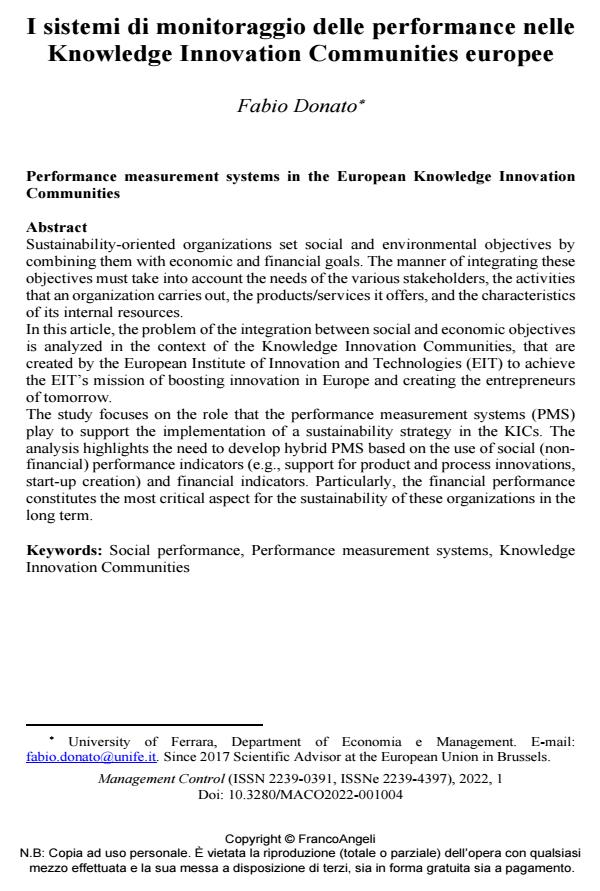I sistemi di monitoraggio delle performance nelle Knowledge Innovation Communities europee
Titolo Rivista MANAGEMENT CONTROL
Autori/Curatori Fabio Donato
Anno di pubblicazione 2022 Fascicolo 2022/1
Lingua Italiano Numero pagine 14 P. 45-58 Dimensione file 198 KB
DOI 10.3280/MACO2022-001004
Il DOI è il codice a barre della proprietà intellettuale: per saperne di più
clicca qui
Qui sotto puoi vedere in anteprima la prima pagina di questo articolo.
Se questo articolo ti interessa, lo puoi acquistare (e scaricare in formato pdf) seguendo le facili indicazioni per acquistare il download credit. Acquista Download Credits per scaricare questo Articolo in formato PDF

FrancoAngeli è membro della Publishers International Linking Association, Inc (PILA)associazione indipendente e non profit per facilitare (attraverso i servizi tecnologici implementati da CrossRef.org) l’accesso degli studiosi ai contenuti digitali nelle pubblicazioni professionali e scientifiche
Sustainability-oriented organizations set social and environmental objectives by combining them with economic and financial goals. The manner of integrating these objectives must take into account the needs of the various stakeholders, the activities that an organization carries out, the products/services it offers, and the characteristics of its internal resources. In this article, the problem of the integration between social and economic objectives is analyzed in the context of the Knowledge Innovation Communities, that are created by the European Institute of Innovation and Technologies (EIT) to achieve the EIT’s mission of boosting innovation in Europe and creating the entrepreneurs of tomorrow. The study focuses on the role that the performance measurement systems (PMS) play to support the implementation of a sustainability strategy in the KICs. The analysis highlights the need to develop hybrid PMS based on the use of social (non-financial) performance indicators (e.g., support for product and process innovations, start-up creation) and financial indicators. Particularly, the financial performance constitutes the most critical aspect for the sustainability of these organizations in the long term.
Parole chiave:Social performance, Performance measurement systems, Knowledge Innovation Communities
Fabio Donato, I sistemi di monitoraggio delle performance nelle Knowledge Innovation Communities europee in "MANAGEMENT CONTROL" 1/2022, pp 45-58, DOI: 10.3280/MACO2022-001004